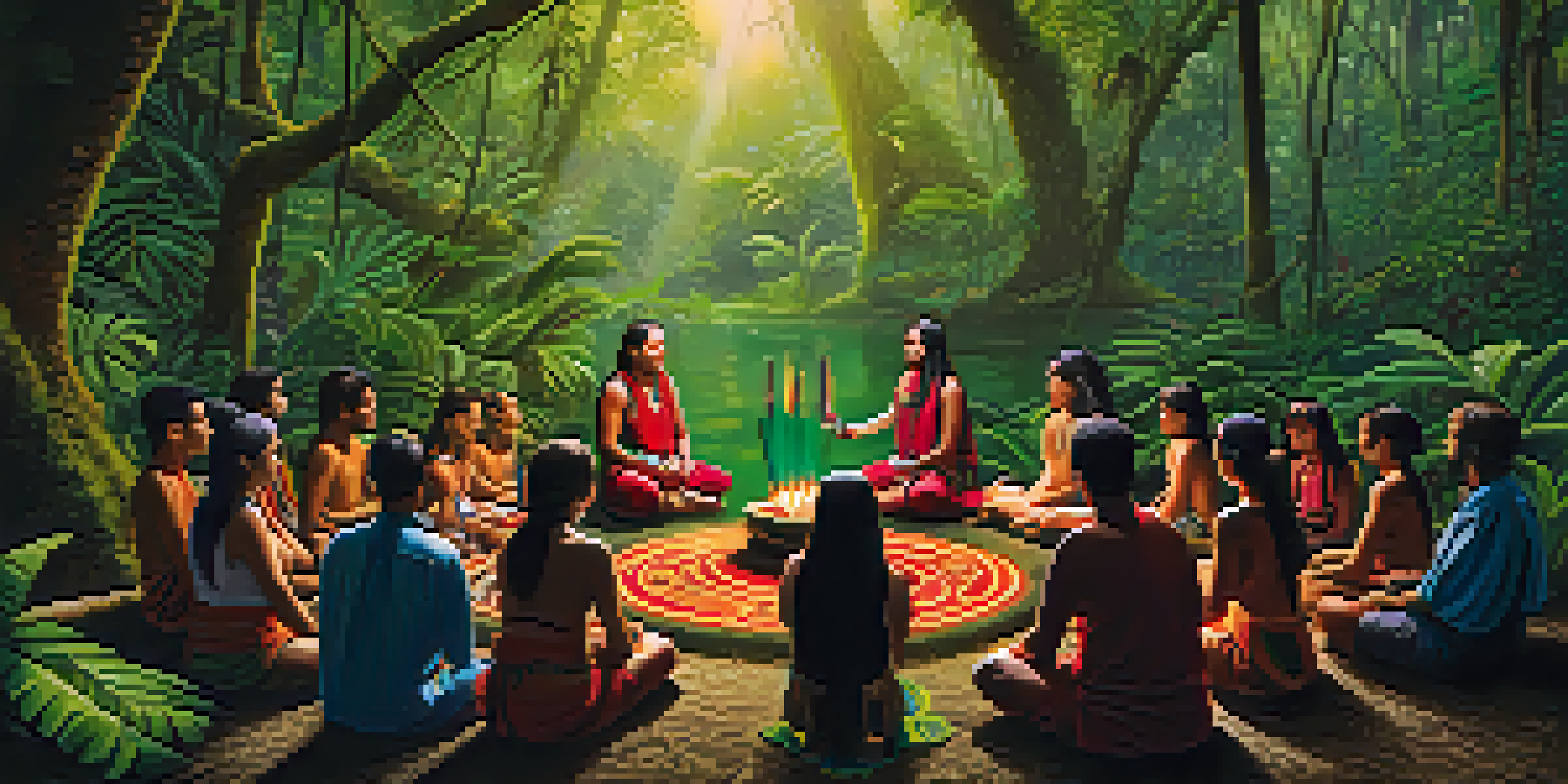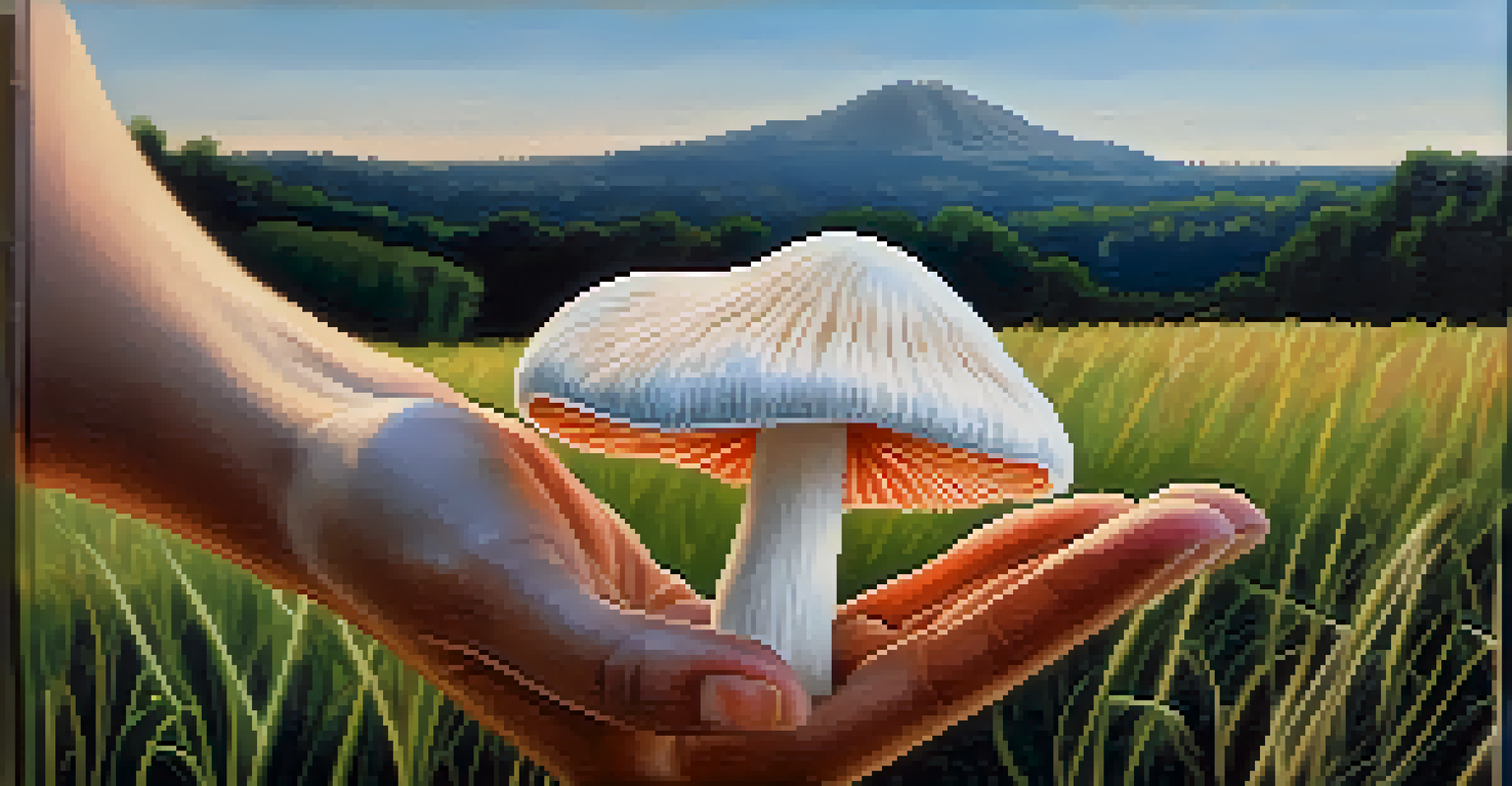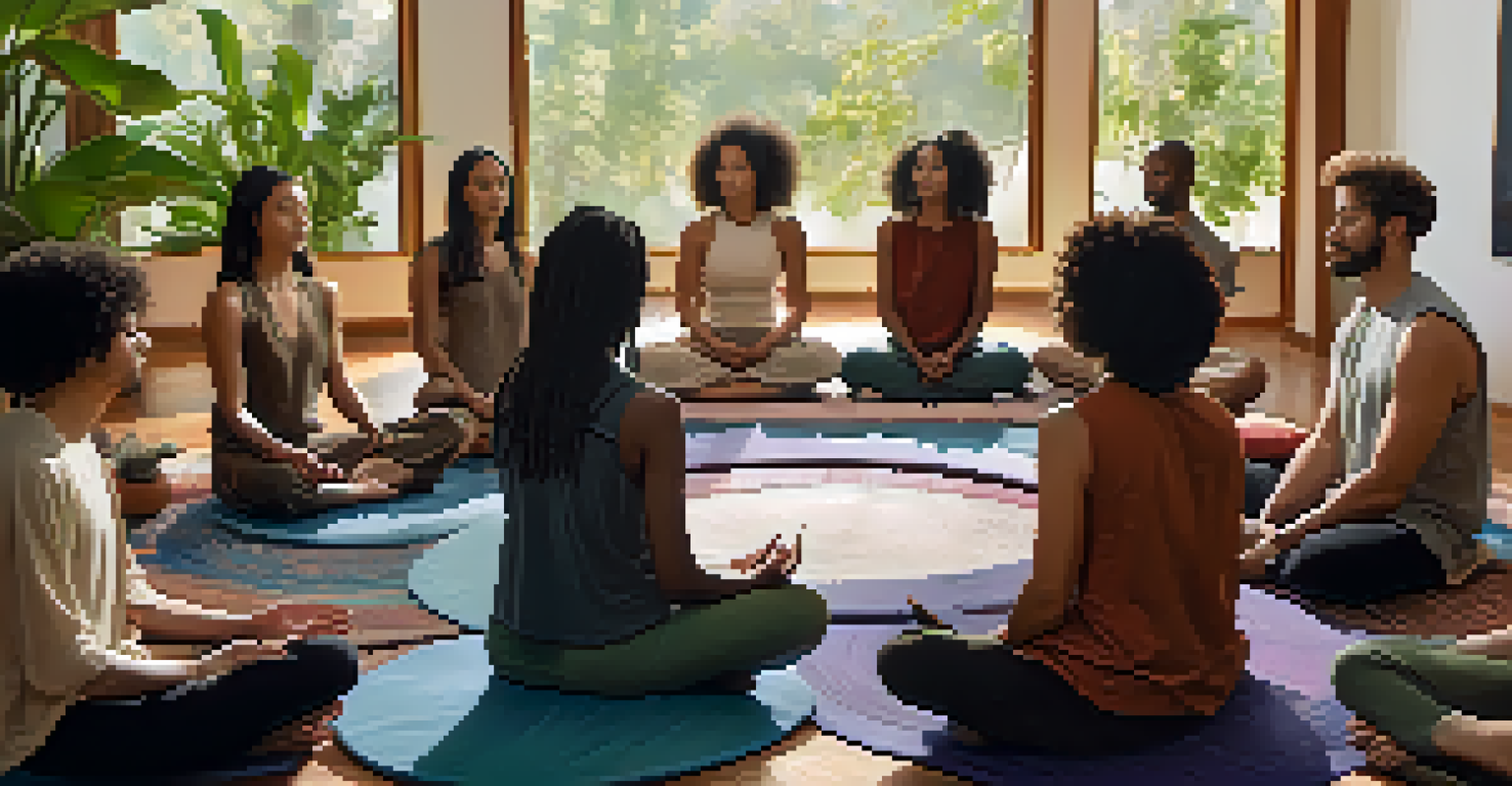Cultural Perspectives on Entheogens and Self-Discovery

Understanding Entheogens: A Cultural Overview
Entheogens are substances that can induce altered states of consciousness, often used in spiritual or religious contexts. Cultures around the world have embraced these substances for centuries, viewing them as gateways to deeper self-understanding and connection with the universe. For example, Indigenous peoples in the Americas have used peyote and ayahuasca in rituals to promote healing and communal bonding.
The experience of using entheogens is not simply one of escapism; it is a profound exploration of consciousness and self-awareness.
These substances are not merely recreational; they hold significant cultural and spiritual value in many societies. In contrast to the often negative stigma surrounding drug use in modern Western contexts, these cultures see entheogens as sacred tools for enlightenment. This distinction highlights the importance of understanding the cultural backdrop when discussing the use of entheogens.
As we explore these diverse cultural perspectives, it becomes clear that entheogens serve roles far beyond mere escapism. They are integral to community identity, spiritual practice, and individual introspection, inviting us to rethink our own approaches to self-discovery.
Historical Significance of Entheogens in Spiritual Practices
From ancient times, entheogens have played a pivotal role in spiritual practices worldwide. For instance, the use of mushrooms in Mesoamerican cultures has been documented for thousands of years, often integrated into rituals aimed at connecting with deities. This historical significance shows that the relationship between spirituality and entheogens is deeply rooted and multifaceted.

In many cultures, these substances are believed to provide wisdom and insight, acting as bridges to the divine. This relationship emphasizes a communal experience rather than an individualistic pursuit, illustrating how entheogens can foster a collective journey towards enlightenment. For example, the use of ayahuasca in the Amazon Basin highlights a shared spiritual experience that strengthens community ties.
Cultural Importance of Entheogens
Entheogens are viewed as sacred tools for enlightenment and community bonding in various cultures, contrasting with their often stigmatized perception in the West.
Such historical contexts remind us that the modern interpretation of entheogens is just one thread in a rich tapestry of cultural practices. By looking back at how these substances were historically revered, we gain insights into their potential for fostering personal and collective growth.
Entheogens and Their Role in Personal Transformation
Many individuals report profound personal transformations after using entheogens. These experiences often lead to increased self-awareness, emotional healing, and a sense of connectivity with others and the universe. For example, people have shared stories of overcoming long-standing mental health issues or deep-seated fears through guided entheogenic experiences.
Entheogens are tools for personal transformation, offering insights that can lead to healing and a deeper connection with oneself and the universe.
This transformative potential is not simply anecdotal; research is beginning to support these claims, showing how substances like psilocybin can facilitate lasting changes in perspective. This shift in mindset can lead to greater compassion, creativity, and overall well-being. However, it’s crucial to approach these experiences with respect and intention, understanding that they can also be challenging.
By framing entheogens as tools for personal transformation, we open up conversations about mental health, spirituality, and self-discovery that transcend cultural boundaries. This approach can empower individuals to seek out these experiences as a means of growth, while also acknowledging the wisdom that different cultures offer.
Cultural Rituals Surrounding Entheogenic Use
Ritual plays a vital role in the use of entheogens across cultures, providing structure and intention to the experience. In many Indigenous traditions, rituals are carefully designed to guide participants through their journeys, often involving music, chanting, and communal support. These elements help create a safe space for exploration, allowing individuals to tap into deeper layers of consciousness.
For instance, in a traditional ayahuasca ceremony, participants are often led by a shaman who facilitates the experience, ensuring that it is both meaningful and transformative. This guidance can be crucial, as it helps participants navigate their journeys and integrate their insights afterward. The importance of ritual underscores that the experience is not just about the substance itself, but also about the shared cultural practices that surround it.
Transformative Potential of Entheogens
Many individuals experience profound personal transformations through entheogens, leading to increased self-awareness and emotional healing.
By recognizing the role of rituals in these experiences, we can better appreciate the depth and significance of entheogenic use in various cultures. This understanding encourages a more respectful approach to exploring these substances, emphasizing the need for context and community.
Modern Western Perspectives on Entheogens
In recent years, modern Western perspectives on entheogens have begun to shift dramatically. Once largely stigmatized and illegal, substances like psilocybin and MDMA are now being researched for their therapeutic benefits. This change signals a growing recognition of the potential these substances hold for personal and societal healing, challenging the historical narrative around drug use.
Many people in Western societies are now turning to entheogens for self-discovery, often seeking out retreats and guided experiences. This trend reflects a broader quest for meaning and connection in a fast-paced, disconnected world. However, it’s essential to approach these experiences with caution and respect for their cultural origins.
By examining modern Western perspectives alongside traditional views, we can cultivate a more nuanced understanding of entheogens. This dialogue can help bridge the gap between cultures, fostering respect and appreciation for the diverse ways that different societies approach self-discovery.
The Ethical Considerations of Entheogen Use
As interest in entheogens grows, so do the ethical considerations surrounding their use. Issues such as cultural appropriation, commercialization, and the commodification of spiritual practices are increasingly at the forefront of discussions. It's essential to approach entheogens with an awareness of their cultural significance and a commitment to honoring those traditions.
For example, participating in ceremonies led by Indigenous leaders can be a way to engage respectfully with these practices. However, it’s crucial to ensure that these leaders are compensated fairly and that their cultural knowledge is not exploited. This ethical framework encourages a more responsible and respectful approach to entheogenic experiences.
Ethics and Responsible Use
As interest in entheogens grows, ethical considerations around cultural appropriation and respect for indigenous practices must be prioritized.
By addressing these ethical considerations, we can contribute to a more equitable dialogue surrounding entheogens. This awareness fosters respect for the cultures that have traditionally used these substances and promotes a more compassionate approach to self-discovery.
Future Directions: Entheogens and Self-Discovery
Looking ahead, the future of entheogens in relation to self-discovery appears promising. As research continues to uncover their therapeutic benefits, we may see a more widespread acceptance of these substances in various contexts. This shift could lead to new avenues for personal growth and healing, offering opportunities for people to explore their inner selves in profound ways.
Moreover, as more individuals share their transformative experiences, the stigma surrounding entheogens may further diminish. This cultural shift could pave the way for more integrated approaches to mental health, wellness, and spirituality, encouraging a holistic view of human experience. The potential for entheogens to bridge gaps between cultures and communities is an exciting prospect.

Ultimately, the journey of exploring entheogens and self-discovery is just beginning. By embracing the diversity of cultural perspectives and fostering respectful dialogue, we can cultivate a deeper understanding of how these substances can enrich our lives and promote personal and collective well-being.